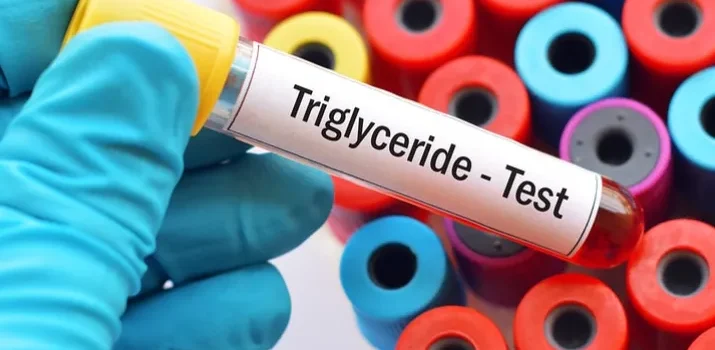When reviewing your cholesterol test results, you may have encountered terms like LDL, HDL, and triglycerides, and wondered what they actually mean. These are all types of cholesterol and lipoproteins found in your blood, and understanding them is essential to assessing your heart health and making informed choices about lifestyle changes and treatments.
Cholesterol 101
Cholesterol is a waxy substance that is crucial for the functioning of your body, but too much of it can be harmful. It combines with proteins to form lipoproteins, which carry cholesterol through your bloodstream. While some cholesterol is necessary, excess cholesterol can build up on artery walls, leading to plaque formation, which narrows blood vessels and increases the risk of heart attacks, strokes, and other heart-related issues.
Knowing your cholesterol levels, including total cholesterol, LDL, HDL, and triglycerides, helps assess your heart disease risk and guide preventive measures.
What Is LDL Cholesterol?
LDL, or low-density lipoprotein, is often referred to as “bad” cholesterol. Elevated LDL levels contribute to plaque buildup in the arteries. LDL attaches to artery walls and, over time, forms oxidized plaques that increase the risk of heart disease. Keeping LDL levels low (below 100 mg/dL) through a combination of medication, healthy eating, exercise, and smoking cessation helps prevent cardiovascular issues.
What Is HDL Cholesterol?
HDL, or high-density lipoprotein, is known as “good” cholesterol. It helps protect your heart by carrying cholesterol away from the arteries and back to the liver, where it’s processed and removed. Higher HDL levels (60 mg/dL or above) are considered beneficial for heart health, as HDL helps prevent plaque formation. To raise HDL levels, regular cardiovascular exercise, maintaining a healthy weight, quitting smoking, and possibly moderating alcohol consumption are important. In some cases, medications like statins can also increase HDL.
What Are Triglycerides?
Triglycerides are another type of fat found in the blood. They are created when the body converts excess calories into fat. After eating, triglyceride levels temporarily rise, but consistently high triglyceride levels (over 150 mg/dL) can be a warning sign of heart disease, especially when combined with high LDL levels and low HDL levels. High triglycerides are often linked to obesity, poor diet, and a sedentary lifestyle.
Lifestyle Changes to Improve Cholesterol Levels
A clear understanding of your cholesterol numbers allows you and your healthcare provider to target areas that need improvement, potentially reducing the need for medications. Here are some effective lifestyle changes to help improve your cholesterol and overall heart health:
- Swap Unhealthy Fats for Healthy Ones
Replace saturated and trans fats in your diet with heart-healthy unsaturated fats. Olive oil, avocados, nuts, seeds, and fatty fish like salmon are excellent sources of unsaturated fats, which help lower LDL and raise HDL. Avoiding unhealthy fats helps reduce inflammation and prevents LDL from damaging artery walls. - Increase Plant-Based Foods
Consuming more fiber-rich foods, such as fruits, vegetables, beans, and whole grains, can help lower LDL cholesterol. Soluble fiber, in particular, reduces cholesterol absorption in the intestines. Additionally, plant-based foods provide antioxidants and phytochemicals that protect against the oxidative stress that contributes to plaque buildup. - Exercise Regularly
Aim for at least 30 minutes of moderate exercise most days of the week. Physical activity lowers triglycerides, raises HDL, reduces LDL, and helps maintain a healthy weight. Consistency is key, so find activities you enjoy to make exercise a regular part of your routine. - Achieve and Maintain a Healthy Weight
Losing even a small percentage of body weight can have a significant impact on cholesterol levels. For example, losing 10-15 pounds can improve LDL and HDL levels and lower triglycerides. Aim for a gradual, sustainable weight loss plan that promotes overall heart health. - Limit Alcohol Intake
Excessive alcohol consumption raises triglycerides and blood pressure, so it’s best to limit your intake. Moderate drinking (one drink per day for women, two for men) may raise HDL slightly, but any additional consumption can lead to negative effects on your heart health. - Quit Smoking
Smoking is one of the most harmful habits for heart health. It immediately raises blood pressure and heart rate, lowers HDL levels, and increases LDL oxidation. Quitting smoking reduces inflammation and helps restore normal cholesterol levels, greatly reducing cardiovascular risk.
By implementing these lifestyle changes, you can improve your cholesterol levels and lower your risk of heart disease. Regular follow-up screenings are essential to track progress and make necessary adjustments.











